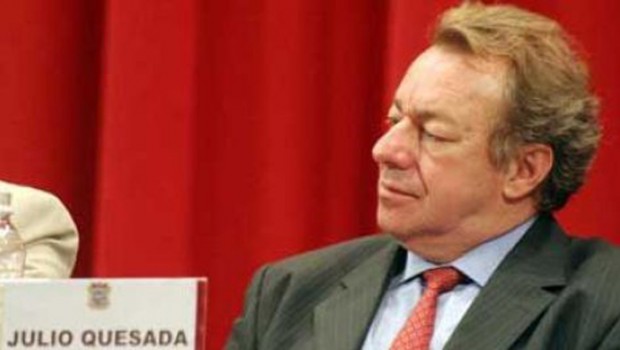Happy Chance Serendipity
Una feliz casualidad Serendipia
Sven Birkerts
Much as I am preoccupied with the concept, I have trouble with the word itself: serendipity. It is, alas, another branding casualty. ‘Serendipity,’ like ‘potpourri’ and ‘bric-a-brac,’ does duty first as a name for a notions store in the renovated downtown district of most any American city, and survives only secondly as an idea. And even then, it is an idea that has been long since gummed into some sort of New Age pap, along with Jungian synchronicity, Zen satori, coincidence, feng shui, you name it. Anything that might serve the agendas of the pop-spiritualists has been put to use and discredited, thereby poisoning the well for us any non-New Agers who might have some sympathy for non-analytic kinds of connectedness.
I want to reclaim serendipity, to strip the fuzzy aura from the idea–not that it’s that profound–but I don’t know if it can be done. I will try. I have my reasons.
Serendipty. The word derives from an old Persian folk-tale about three princes of Serendip who possessed the gift for finding “valuable or agreeable things not sought for.” (Webster’s). Happy chance. Obviously there’s no way such a pleasing mystery could escape appropriation by owners of cute gift-shops and card emporia. It’s a soft idea, I agree, but I want it.
Not as is–no, I want to work with it, mold it to my uses. To start, my notion of serendipity is not as benign or general as what that the derivation offers. For me, serendipity is about attention, recognition, and unexpectedness; about things coming to hand as needed, and is thus linked to another favorite concept, bricolage, which has to do with purposing available materials to unexpected uses. It does link, too, to synchronicity, the recognition that certain causally unrelated events can be seen to have thematic echoes with each other, carrying intimations of meaningful convergence. To accept the serendipitous elements of experience is to extend the reach of the meaningful by allowing the value of suggestive resonance. It does not imply a surrender to a mysticism of crystals and Tarot packs.
Or does it? Why am I being so guarded in my approach to this? What am I saying when I say that I welcome serendipity into my life?
I’m saying chance may have significance, if not in terms of showing forth the nature of realty, then certainly in revealing how the mind shapes meaning, how it looks for convergence, harmonies between things, implications. I welcome serendipity in part because I have to, because it is, whether I like it or not, part of how I navigate the circumstances of my life. My awareness of it testifies to the fundamental truth that I narrate my progress through the day, that I look for–impose–meanings where to another person there might not be meanings. I conceive my life in large general terms as an undertaking that might–that I hope will–yield meaning. This is very general, I know, but I am dealing with a subjective, an existential, concept, not one amenable to scientific analysis.
The second “technology” might be described as serving up the algorithms of preference based on input we’ve provided. We see this at Amazon with books, If you enjoyed…, at Netflix with movies, and most recently–and obviously–with Pandora, the program that feeds us music that conforms to what are deemed to be our listening tastes. But this fine-casting is hardly confined to the arts. Indeed, our every move on-line is now shadowed. The information we have provided with our myriad searches and purchases has been put to work. Our discrete on-line actions are rapidly being converted into user-profiles, profiles that map to our purchasing behavior, our ostensible subject interests, and, aesthetic preferences. Our every on line move is logged and subjected to various calculations. The more we use the internet, the more refined the search–the object of which is us. The world is pulled around us like a kind of saran-wrap.
Both of these technologies, these applications–they seem to be almost universally touted right now–represent an abridging of initiative, a short-circuiting of old trial-and-error approaches. They bring the world to us in ways hitherto unknown, and in the process reorient us, not so subtly, in our way of encountering it. Our use of these applications, and our involvement in new assumptions and expectations, is changing our experience at the most baseline level.
This assertion is closely tied up with the debate currently much in the news, which can be summarized using the slightly alarmist headline I’ve seen more than once: “Is the internet changing our brains?” Discussion–and dispute–have most recently been sparked by the publication of Nicholas Carr’s book, The Shallows, which argues in essence that, yes, our internet use is physically changing us, re-wiring us neurally in demonstrable ways. The brain turns out to be an organ of remarkable plasticity. While I am fascinated by Carr’s presentation, my suppositions here concern transformations at a different level– with ways of thinking of ourselves and what we do–though who knows if neural impulses are not in some way also implicated.
I want to consider what happens when a technology enables–indeed, encourages–a change in a customary way of doing things, how old patterns of response, old understandings modify accordingly. But if I speculate on the impact of specific applications, I keep in mind that the effects are necessarily modified–very likely amplified–by the countless other kindred transformations taking place at the same time. I will focus on GPS and Pandora, taking them as cases in point, but the use of either or both happens in tandem with a host of other engagements: Twitter, Facebook…
GPS. On the face of it, an application that converts the unprecedented power of search engines to the most practical utilitarian effect: devising the easiest pathway from point A to point B through the tangle of our surface grid of roads and highways. A few years ago I was astonished–that such a thing could exist, that people I knew would use it, would extol it without being appalled, would eventually profess themselves completely reliant on it. I offered up the obvious argument–which still strikes me as a good one: that it represents a ceding of intiative, imposes another layer between person and surroundings; that it turns one kind of process into another. This last seems especially truth, worth investigating. “But what about maps? How is this different from looking at a map?”
Maybe that’s the way to get at it. How is using GPS different from using a map? When I consult a map to get myself from my house in Arlington to an unfamiliar address in, say, Natick, I am venturing an act of interpretation. I consult the spatialized landscape on offer, reading it through what I understand–markings that indicate highways, avenues, streets, and, if I have a good map, lanes and smaller byways. I then obey certain assumptions, negotiate various probabilities, making guesses about distances, likelihood of access (exits, one-way streets), and so on. When I head out, map spread open on the street beside me, I toggle between that empirical grid and my experienced sense that at key junctures I may have to improvise, finding another street to substitute for an unmarked one-way, or–god forbid–asking directions when a road is unexpectedly closed or does not appear as indicated. Maps, even the best, are never not approximations, and I read any map with that as my baseline assumption. There will be an element of improvisation to any trip I take, and I factor that in.
“But this is true with GPS, too!” my user-friends tell me. GPS can’t report when a road is closed for emergency repairs, or a leftturn is suddenly proscribed. They tell me this as if to say there is no difference after all, not in the way I’m thinking.
What is going unremarked is that while I am the one looking at the map and making my guesses, solving for X as I go, the GPS has already solved for X and is telling me what I need to do and I need only obey. Never mind that every so often there is the kind of glitch that makes the system as fallible as a map, the point is that psychological agency is completely reversed, and that I have placed my trust in the infallibility of a device. What had been an action of informed surmises–driving to a destination–has become one of heeding commands, each one simply a means to the desired end. Those informed surmises related me to the landscape I was traversing, every juncture inviting me to test, confirm, and to some degree implant myself in the terrain. And the various impulse modifications of plan–that road looks bigger, I’m sure it goes through–injected possibility, at least the idea of it, into my day. The GPS is not a more sophisticated map– it is a giving over, in small and maybe large ways, the essence of travel. Travel, in my admittedly romantic conception, is not the utilitarian progress from point to point with the ultimate aim of arrival. It is, rather, the experience of traversing the unknown, or unfamiliar, enabled by that point-to-point framework. And what GPS is doing, literally and symbolically, on the local scale, can stand for what is happening on other scales: it is banishing the idea of inefficiency, of being lost, of unforeseen intersection (not absolutely, of course). If travel is in large part an encounter with the unknown, then our new applications are rationalizing core aspects of that experience. Not only by getting us there without distraction or digression, but also by selling incessantly the message of knowability: everything has been measured and calculated. The world may be our oyster, but it is a farm-raised creature, not an essence drawn up from the sea-bed.
This is a big thing, our subliminal absorption of the idea that our world has been completely digested and mastered, and that we progress by obedience.
The other application in question was that of the preference algorithm–the “Pandora effect.” Here again I feel up against what seems to be an almost universal enthusiasm. What could possibly be wrong about technology anticipating and custom-responding to my tastes–in books, music, film…? It’s not as though my tastes are being dictated or in any way reformed. No, if anything they are being enhanced. If I tell Pandora that I like the music of Tim Hardin and early Paul Simon and the program then introduces me to Nick Drake and certain songs by Richard Thompson and reminds me, too, that I used to like very early Donovan, who am I to complain? I’ve found things that give me pleasure that I might have never encountered otherwise, the vagaries of listening being what they are. There’s that Eric Rohmer film I never knew existed, and the poetry of Michael Hoffman. World abundant!
My grouse? It’s obvious: that these preference-feeders, while undeniably enabling much, are another thing shifting us from initiative to obedience, and in the process, somehow stealing a portion of the mystery that is our due. Not that Pandora by itself stops the listener from striking fresh trails into the unknown. But it does change the game, does it not? Instead of doing whatever unstructured and aimless thing she did before, the listener is now far more likely to proceed via the Pandora system, proposing new favorites to the preference machine and seeing where they might lead.
How is this different? As there was a qualitative difference between searching for a destination via GPS versus paper map, so there is a difference between the Pandora route and the old process of chasing leads. The latter was, granted, more labor-intensive, and it asked for a much different time-line. It amounted to, at least for me, paying a very special kind of attention. If I liked an artist, I naturally scoured the liner notes (or CD inserts) for mentions of others, I kept my antennae out in all directions, I listened to the radio, I heeded people whose tastes I trusted, and so on. Making a connection, like that from Tim Hardin to Nick Drake, might take years–it did take years–but the payoff felt sweet and earned, and the fact that it didn’t happen instantly gave me a sense of the vastness of the musical landscape, how it extended geographically and through time, strung together by fine strands of influence.
I don’t expect this to persuade many. But maybe it will make clear why that word–serendipity–has been so present to me. I feel that one great commonality of these applications and others (friendlocators, customized shopping tips…) is to short-circuit serendipity, to undercut the worldview that it is part of. Bringing a set of finely tuned but essentially rationalized systems in, making them part of our subjective process, our behavior, eats away at the unknown, at the idea of the unknown. It does not augment us, though having all these new high-speed capacities would seem to. Rather, it changes the ground we stand on, giving us an illusion of comprehensibility where there really is none. We are not seeing the triumph over the unknown. We are seeing, rather, the differential between what we can achieve and what our super-engineered machines can. Where their reach concludes, the unknown resumes, and it is no less infinite than it was before. That truth we cannot afford to lose, for without it all is hubris.
Tengo problemas con la palabra misma: serendipia, por mucho que esté interesado en el concepto. Desafortunadamente, se trata de una víctima más de la “casualidad”. El primer sentido que se le da a serendipia –como popurrí y bric-a-brac–, es el de una “fábrica de ideas” típica del centro remodelado de cualquier ciudad estadunidense; el significado original, por su parte, sobrevive sólo como segunda acepción. Se trata de una idea que ha subsistido asociada a una suerte de papilla New Age, mezclada con la sincronicidad jungiana, el satori zen, el azar, el feng-shui o lo que sea. Cualquier cosa útil al negocio de los espiritualistas pop es usada y desacreditada, envenenando el bien que pudiera reportar a aquellos escépticos con simpatías por algún tipo de “conexión” no-analítica.
Me gustaría recuperar esta palabra despojándola de su aura difusa, aunque no sé si podré hacerlo. Voy a intentarlo. Tengo mis razones.
El vocablo serendipia deriva de un antiguo cuento persa sobre tres príncipes oriundos de Serendip con el don de encontrar “cosas valiosas o agradables sin proponérselo” (Webster). Una casualidad feliz… Obviamente, no había forma de que tan encantador misterio escapara a los dueños de tiendas de regalos ni a los emporios de las tarjetas de crédito. Es una idea soft, lo sé, pero así la quiero.
Me interesa trabajar con esta palabra moldeándola a mis usos. Para empezar, mi noción del vocablo no es tan vaga, según lo que sus derivaciones ofrecen. Serendipia implica atención, reconocimiento de lo inesperado: trata de esas cosas que están a la mano cuando son necesarias. Aparece asociada también a otro concepto muy conocido, el bricolage, que tiene que ver con materiales disponibles para usos inesperados. Se vincula asimismo con la sincronicidad, es decir, con el reconocimiento de que ciertos acontecimientos no relacionados causalmente pueden despertar ecos temáticos entre sí, mostrando indicios de una convergencia significativa. Aceptar estos elementos de la experiencia es ampliar el alcance de la significación al permitir el valor de la resonancia sugerente. Lo que no implica rendirse al misticismo de los cristales y el Tarot.
¿Pero por qué me muestro tan cauteloso en mi acercamiento? ¿Qué digo cuando afirmo que celebro la serendipia en mi vida?
Estoy afirmando que la casualidad puede tener un significado, si no en términos de mostrar progresivamente la naturaleza de la realidad, sí al revelar cómo la mente da forma al significado, cómo advierte la convergencia, la armonía entre las cosas y sus implicaciones. Doy la bienvenida a la serendipia. Tengo que hacerlo pues, me guste o no, es parte de cómo navego entre las circunstancias de mi vida. Mi conciencia de ella testifica la verdad fundamental que narra mi progreso durante el día, buscando imponer significados donde otra persona quizá no los vea. En términos generales, concibo mi vida como una empresa que puede –tengo la esperanza– rendir significados. Todo esto resulta muy general, lo sé. Pero estoy tratando con un concepto subjetivo, existencial y no susceptible de análisis científico.
Utilizo serendipia como una especie de palabra clave en mi pensamiento. Ahora necesito aclarar por qué es importante.
Últimamente me preocupan dos tipos de tecnologías. Más que tecnologías son en realidad “servicios” o aplicaciones, aunque como ya están tan incrustadas en nuestro uso de dispositivos, la palabra “tecnologías” puede servir. La primera de ellas depende de la búsqueda a alta velocidad en un cuerpo de datos incomprensiblemente enorme con el propósito de ofrecer una respuesta casi instantánea, exacta y autorizada, donde antes no había estado disponible. Pienso en las búsquedas –bajo la suposición generalizada de que las cosas se pueden encontrar en un parpadeo–, de Google y Wikipedia así como en el GPS o las pequeñas pantallas planas que nos dicen de inmediato y con exactitud en dónde nos encontramos.
La segunda “tecnología” podría describirse como aquella que utiliza algoritmos de preferencia, basados en la información que proporcionamos. Esto ocurre en Amazon con los libros (Si disfrutaste…); en Netflix con películas, y más recientemente con Pandora, un programa que nos ofrece música afín a nuestro gusto. Sin embargo, este fino reparto no se restringe a las artes. De hecho, todos nuestros movimientos en línea son seguidos de cerca. La información que hemos proporcionado en miles de búsquedas y compras se ha puesto a trabajar. Nuestras discretas acciones son rápidamente convertidas en perfiles de usuario a partir de hábitos de compra, intereses y preferencias estéticas. Todo se registra y somete a diversos cálculos. Entre más usamos internet o más refinadas son nuestras búsquedas, es evidente que el objetivo somos nosotros. El mundo nos envuelve así como una especie de película plástica para refrigerar.
Ambas tecnologías o aplicaciones –ahora promovidas casi universalmente– coartan toda iniciativa y representan un cortocircuito a las viejas aproximaciones basadas en el ensayo y el error. Nos ofrecen el mundo en formas hasta ahora desconocidas y reorientan, no tan sutilmente, nuestra manera de encontrarnos con él. El uso de estas aplicaciones, y nuestra participación en nuevos supuestos y expectativas, está cambiando nuestra experiencia en el nivel más básico.
Esta afirmación está vinculada con el debate que pueden resumirse con el título ligeramente alarmista que he visto más de una vez: “¿Internet está alterando nuestros cerebros?” Dicha controversia se ha acrecentado recientemente tras la publicación del libro de Nicholas Carr, The Shallows, que en esencia sostiene que sí: nuestro uso de internet nos está cambiando físicamente, nos recablea neuralmente de manera demostrable. El cerebro resulta ser un órgano de notable plasticidad. Si bien estoy fascinado por la presentación de Carr, mis suposiciones aquí conciernen a transformaciones en un nivel distinto –las maneras de pensar acerca de nosotros mismos y de lo que hacemos–, aunque quién sabe si los impulsos neuronales no están también implicados.
Quiero considerar lo que sucede cuando la tecnología permite –o anima– un cambio en la forma habitual de hacer las cosas; cómo, en consecuencia, se modifican los añejos patrones de respuesta y entendimiento. Pero si especulo sobre el impacto de aplicaciones específicas, tengo en cuenta que los efectos están necesariamente modificados –muy probablemente amplificados– por otras transformaciones afines que ocurren al mismo tiempo. Me centraré en el GPS y Pandora, tomándolos como casos pertinentes, pero el uso de uno o ambos ocurre en tándem con una serie de otros engranajes: Twitter, Facebook…
GPS. Una aplicación que convierte la energía sin precedentes de los motores de búsqueda en el sentido utilitario más práctico: la elaboración del sendero más fácilmente transitable entre el punto A y el punto B a través de la maraña de nuestra red superficial de caminos y carreteras. Hace unos años me quedé asombrado de que tal cosa pudiera existir, que la gente que conocía haciera uso de ella encomiándola sin consternarse; me asombró incluso que, con el tiempo, se declara ran sus dependientes absolutos. Ello me ofreció un argumento obvio que aún me parece bueno: esta tecnología implica una cesión de la iniciativa, nos impone una capa más que aleja a la persona de su entorno; modifica un proceso y lo convierte en otro. “¿Qué sucede con los mapas? ¿En qué se diferencia el uso del GPS de consultar un mapa?”
Quizá esta es la manera de llegar al meollo: cuando consulto un mapa para ir de mi casa en Arlington hacia una dirección desconocida –digamos, en Natick–, estoy aventurando un acto de interpretación. Observo el paisaje acotado que se me ofrece, realizo una lectura de las señales que indican las carreteras, avenidas, calles y, si tengo un buen mapa, callejuelas y pequeños senderos. Entonces sigo ciertas suposiciones, sopeso varias posibilidades haciendo conjeturas sobre las distancias, las probabilidades de acceso (salidas, calles de sentido único), y así sucesivamente. Cuando salgo, con el mapa abierto a un lado mío y listo para ser consultado, puedo alternar entre esa red empírica y mi sentido experimentado para que, en los momentos clave, pueda improvisar, buscar otra calle para sustituir aquella que no estaba marcada como de un solo sentido o –dios no lo quiera– pedir direcciones cuando un camino está cerrado inesperadamente o no aparece como se indica. Los mapas, incluso los mejores, no son nunca aproximaciones fidedignas; los leo partiendo de esta hipótesis. En cualquiera de mis viajes habrá un elemento de improvisación y yo soy el factor determinante en ese asunto.
“¡Pero esto también ocurre con un GPS!”, me dicen mis amigos. No puede informarnos sobre un camino cerrado por reparaciones urgentes o sobre un giro a la izquierda súbitamente prohibido. Me hablan como si, despues de todo, no hubiera diferencia entre nuestras formas de pensar.
Lo que no advierten es que mientras yo soy quien mira el mapa y hace ciertas conjeturas para encontar la forma de llegar a X, el GPS ya lo ha resuelto, me indica lo necesario y sólo debo obedecer. No importa que ocasionalmente ocurra una falla que haga al sistema tan falible como un mapa, el punto es que el mandato psicológico se ha invertido y ahora pongo mi confianza en la infalibilidad de un dispositivo. Lo que antes era una acción basada en conjeturas sobre la información para llegar a un destino, se ha transformado en un acto de “atención a los comandos”, los cuales son simplemente un medio para obtener un fin. Las conjeturas basadas en la información me relacionan con el paisaje; cada disyuntiva me invita a probar, confirmar y, hasta cierto punto, me instala en el terreno. Y el impulso sobre las modificaciones del plan (la carretera se ve más grande, estoy seguro de que podemos pasar) inyecta más posibilidades a mi día. El GPS no es un mapa más sofisticado: es una capitulación pequeña, o tal vez grande, de la esencia del viaje.
En mi concepción ciertamente romántica, viajar no implica el progreso utilitario de ir de un punto a otro con el propósito último de llegar a un sitio. Es, más bien, la experiencia de atravesar lo desconocido, lo no familiar, inscrito en ese marco que contiene el viaje de uno a otro puntos. Y lo que está haciendo el GPS a pequeña escala, literal y simbólicamente, puede estar determinando (no totalmente, por supuesto) lo que sucede en zonas más amplias: desterrar la idea de ineficiencia, de desvío o de perderse. Si el viaje es en buena parte un encuentro con lo desconocido, entonces nuestras nuevas aplicaciones son la racionalización de los aspectos centrales de esa experiencia. No sólo nos llevan sin distracción o digresión sino que, también, nos venden constantemente su mensaje de cognoscibilidad: todo ha sido medido y calculado. El mundo puede ser una ostra y su criatura una perla cultivada, no una esencia producida a partir de sedimentos marinos.
Se trata de la absorción subliminal y significativa de la idea de que nuestro mundo ha sido completamente digerido y domesticado: progresamos por obediencia.
La otra aplicación que me interesa es la del algoritmo de preferencia: el “efecto Pandora”. Una vez más me siento en contra de lo que despierta el entusiasmo universal. ¿Qué podría estar mal en una tecnología que anticipadamente, y dependiendo de mis preferencias, responde a mis gustos en libros, música, cine, etcétera? No es que mis gustos hayan sido “dictados” o, de alguna manera, reformados. Finalmente, todo se está mejorando. Si le digo a Pandora que me gusta la música de Tim Hardin y el primer Paul Simon, el programa me ofrece a Nick Drake o algunas canciones de Richard Thompson y, de paso, me recuerda que me gustaba Donovan en sus inicios… ¿Quién soy yo para quejarme? Así he dado con cosas que, probablemente, nunca habría encontrado de otro modo: los caprichos de la música son lo que son. Y no es que ignorara que la película de Eric Rohmer o la poesía de Michael Hoffman existían… ¡Pero el mundo es amplio!
¿Cuál es mi queja entonces? Resulta obvio: aunque nos facilitan más las cosas, estas preferencias “alimentadas” son otro de los mecanismos que inducen el cambio de la iniciativa a la obediencia. En el proceso se nos ha sustraído una parte del misterio. No es que Pandora, por sí misma, nos aparte de las huellas seductoras y aún frescas de lo desconocido. Pero el juego se altera. En lugar de lo que sin rumbo hacíamos antes, es muy probable que ahora el interlocutor continúe a través del sistema de Pandora, proponiendo nuevos favoritos a la máquina de preferencias para ver a dónde puede llevarlo.
¿Cuál es la diferencia? Así como hay un contraste cualitativo entre buscar un destino a través de GPS o frente a un mapa de papel, hay otro entre la ruta que guía Pandora y el antiguo proceso de desentrañar. Este último supone un trabajo intenso y requiere de una cantidad de tiempo distinta. Implica, al menos para mí, poner una clase muy especial de atención. Por ejemplo, si me gustaba un artista, naturalmente leía los comentarios en las portadas de sus discos (o los folletos de los CD) para saber más sobre otras interpretaciones, me mantenía alerta escuchando la radio, las opiniones de personas en cuyos gustos confiaba, etcétera. El establecimiento de una conexión, como la que lleva de Tim Hardin a Nick Drake, podría tardar años –de hecho así sucedió–, pero existía una bien ganada y dulce recompensa: el que no ocurriera inmediatamente me permitió concebir la inmensidad del paisaje musical, su extensión en la geografía y en el tiempo, unidas por finas hebras de influencias.
No espero convencer a muchos. Pero tal vez aclare por qué he tenido tan presente esa palabra: serendipia. Creo que una gran convergencia de estas aplicaciones y otras (amigo-localizadores, consejos de compras personalizados, entre otras) omite deliberadamente la serendipia, socava la visión del mundo del que forma parte. Al traer un conjunto de afinados sistemas –esencialmente racionalizados–, haciéndolos parte de nuestros procesos subjetivos, nuestro comportamiento se alimenta lejos de lo desconocido, frente a la idea de lo desconocido. No amplían nuestros horizontes, a pesar de ofrecer todas esas nuevas capacidades de alta velocidad. Por el contrario, cambian la tierra que pisamos, brindándonos una ilusión de comprensión, donde realmente no hay ninguna. No somos testigos del triunfo sobre lo desconocido. Más bien, estamos viendo la diferencia entre lo que podemos lograr y lo que la super-ingeniería de nuestras máquinas puede hacer. Donde ellas concluyen, lo desconocido continúa: y no es menos infinito de lo que era antes. No podemos darnos el lujo de olvidar esa verdad, pues sin ella todo es arrogancia.










